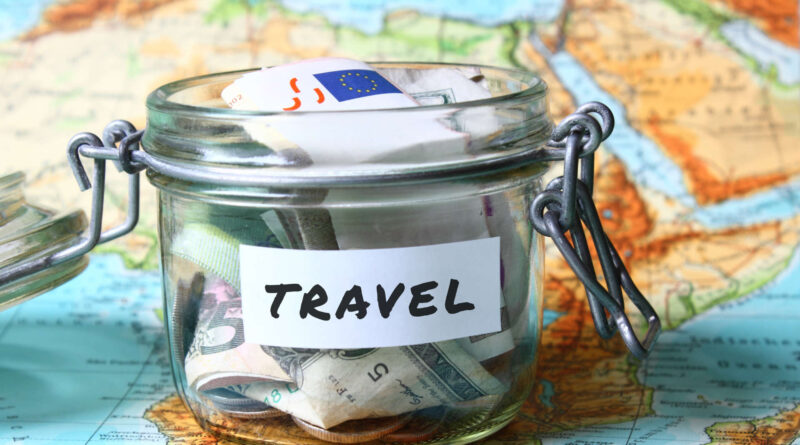How Can You Travel on a Budget Without Sacrificing Experience?
Introduction
Traveling is one of life’s greatest pleasures, but it can also be expensive. Whether you’re dreaming of a relaxing beach vacation, an adventurous road trip, or a cultural city exploration, the costs can add up quickly. However, with some smart planning and the right strategies, it’s entirely possible to travel on a budget without compromising on the quality of your experience.
In this article, we will explore how you can travel affordably while still enjoying the full experience of your destination. From planning tips to creative ways to save on accommodation, transportation, and activities, we’ll help you create a memorable trip without breaking the bank.
1. Plan Ahead and Be Flexible
One of the best ways to save money while traveling is by planning ahead. The earlier you start preparing, the more likely you are to find deals on flights, accommodations, and activities.
- How it helps: Early bookings give you access to discounts and the chance to compare options to find the best deals. By being flexible with your travel dates, you can also take advantage of lower-priced travel periods.
- Benefit: Flights and hotels can often be 30-50% cheaper when booked in advance, especially during non-peak seasons. Additionally, flexible dates allow you to avoid high-demand times, such as holidays or major events, which often drive up prices.
Tip: Use fare comparison websites and set up price alerts to track fluctuations in prices for flights and accommodations. A little bit of planning can go a long way in saving you money.
2. Use Alternative Accommodation Options
Accommodation is one of the biggest expenses when traveling, but it doesn’t have to be. Instead of booking traditional hotels, consider alternative accommodations that are often more affordable and offer unique experiences.
- How it helps: Platforms like Airbnb, Hostelworld, and Couchsurfing allow you to book affordable stays in private rooms, shared apartments, or even with locals. Hostels, guesthouses, and homestays can also offer a great alternative to pricey hotel rooms.
- Benefit: Not only will you save money, but staying with locals or in unique properties can enhance your travel experience by providing insider tips and a more authentic feel.
Tip: Consider staying in smaller towns or neighborhoods slightly outside the city center. These areas tend to offer more affordable lodging options, and they often provide a quieter, more local experience.
3. Travel Off-Season or Shoulder Season
Traveling during the off-season or shoulder season (the period between peak and off-peak seasons) can significantly reduce your travel expenses without sacrificing the quality of your experience.
- How it helps: Off-season travel means fewer tourists, lower prices, and a more relaxed atmosphere at your destination. You’ll enjoy the attractions without the crowds, and you won’t be paying inflated prices.
- Benefit: In addition to cost savings on flights and accommodations, you’ll find that many tourist attractions and activities offer discounts during these quieter periods.
Tip: Research your destination to identify the off-peak months. For example, traveling to Europe in early spring or late autumn often provides great weather and more affordable options.
4. Use Public Transportation or Walk
Transportation costs can eat up a large portion of your travel budget, but using public transportation or walking is a budget-friendly alternative to taxis, rental cars, or expensive tours.
- How it helps: Most cities offer affordable public transportation options, such as buses, trains, or trams, which can help you get around quickly and cheaply. In some cities, walking can also be a great way to explore at your own pace and save money.
- Benefit: Public transportation often provides an authentic local experience, letting you see the city from a different perspective while saving money.
Tip: Research transportation passes that offer unlimited travel for a set number of days. Many cities offer these passes, which can save you money and give you the flexibility to move around as you wish.
5. Embrace Free and Low-Cost Activities
You don’t need to book expensive tours or activities to have a memorable travel experience. Many destinations offer free or low-cost activities that are just as enjoyable and enriching.
- How it helps: Museums, parks, walking tours, hiking trails, and local markets are often free or have a very low entry fee. Many cities also offer free events, such as festivals, concerts, or exhibitions, that can give you a taste of local culture without the hefty price tag.
- Benefit: Free activities allow you to immerse yourself in the culture and beauty of a destination without spending much money. Plus, you’ll likely avoid the crowds at popular paid attractions.
Tip: Research free events and activities at your destination, such as walking tours, museum days, and nature trails. Locals often know the best hidden gems that won’t cost you anything to enjoy.
6. Eat Like a Local
Dining out at tourist hotspots can be expensive, but eating like a local is not only more affordable but also provides a more authentic experience.
- How it helps: Local markets, street food stalls, and small eateries often serve delicious food at a fraction of the price you’d pay in touristy areas. Plus, trying local specialties can be a highlight of your trip.
- Benefit: Eating at these spots will not only save you money but also give you a true taste of the local culture and cuisine. Many destinations are known for their street food, which is often a must-try and incredibly affordable.
Tip: Look for places where locals eat, ask for recommendations, or even explore local food markets. Eating breakfast at local cafes or bakeries can also be a great way to save on meals.
7. Travel Light to Avoid Extra Costs
When traveling on a budget, packing light can save you money on baggage fees and make your travels more convenient.
- How it helps: Airlines often charge for checked luggage, and carrying large bags can be inconvenient, especially when using public transportation or walking. Traveling light means fewer fees and more freedom to explore.
- Benefit: Packing only the essentials also means you can move around more easily, whether you’re hopping between cities or exploring local attractions.
Tip: Invest in a good-quality carry-on bag and pack versatile, lightweight clothing. Aim to pack only what you’ll truly need to avoid paying extra for checked luggage.
8. Use Travel Rewards and Loyalty Programs
If you’re a frequent traveler or plan on traveling multiple times, taking advantage of travel rewards and loyalty programs can help you save a substantial amount of money.
- How it helps: Many credit cards offer points or miles for every purchase, which can be redeemed for flights, hotels, or car rentals. Airline and hotel loyalty programs also offer discounts, upgrades, and exclusive deals for members.
- Benefit: Over time, these rewards can help you earn free flights, hotel stays, and upgrades, which can significantly reduce your overall travel costs.
Tip: Sign up for travel rewards programs and consider getting a travel rewards credit card. Just be sure to pay off your balances on time to avoid interest charges.
9. Work or Volunteer Abroad
If you’re open to a longer-term travel experience, working or volunteering abroad can help you save money while traveling. Many organizations offer free accommodation and meals in exchange for work.
- How it helps: Programs like Workaway, WWOOF (World Wide Opportunities on Organic Farms), or teaching English abroad provide opportunities to live in a new country while contributing to the local community.
- Benefit: You’ll save money on accommodation and food, and you may even get the chance to immerse yourself deeply in the culture, making your experience more meaningful.
Tip: Research reputable work-exchange programs or teaching opportunities that provide you with food and lodging, allowing you to travel for an extended period at little to no cost.
10. Set a Budget and Stick to It
To avoid overspending, it’s crucial to set a realistic budget before your trip and stick to it. Track your expenses as you go, and prioritize activities and experiences that align with your budget.
- How it helps: By knowing how much you can spend each day, you can allocate your funds wisely and ensure you have enough to enjoy your trip without financial stress.
- Benefit: Setting a budget helps you make conscious decisions about where to spend and where to save, ensuring you get the most out of your experience while avoiding unnecessary expenses.
Tip: Use budgeting apps or spreadsheets to track your spending and make sure you’re staying on track with your travel budget.
Conclusion
Traveling on a budget doesn’t mean you have to compromise on the quality of your experience. By planning ahead, staying flexible, choosing alternative accommodation, embracing local activities, and being mindful of your expenses, you can enjoy a fulfilling travel experience without overspending.
Remember, the essence of travel lies in the experiences, cultures, and memories you create along the way. With the right strategies, you can explore the world, create lasting memories, and keep your finances in check at the same time.

